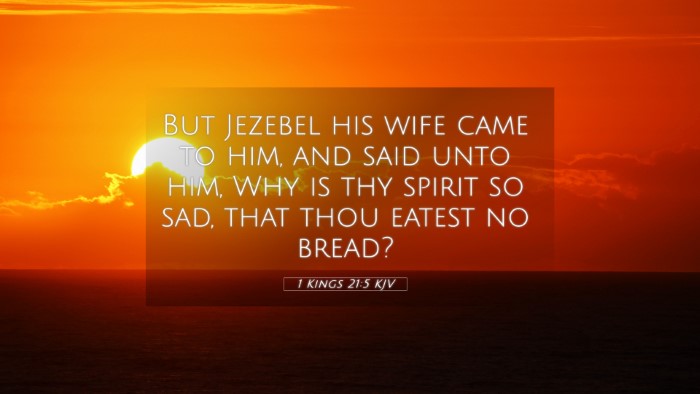This section features a detailed cross-reference designed to enrich your understanding of the Scriptures.
Below, you will find carefully selected verses that echo the themes and teachings related to 1 Kings 21:5 KJV. Click on any image to explore detailed analyses of related Bible verses and uncover deeper theological insights.
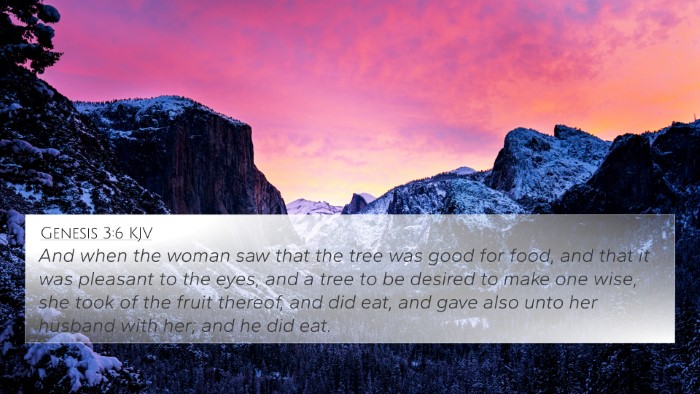 Genesis 3:6 (KJV) »
Genesis 3:6 (KJV) »
And when the woman saw that the tree was good for food, and that it was pleasant to the eyes, and a tree to be desired to make one wise, she took of the fruit thereof, and did eat, and gave also unto her husband with her; and he did eat.
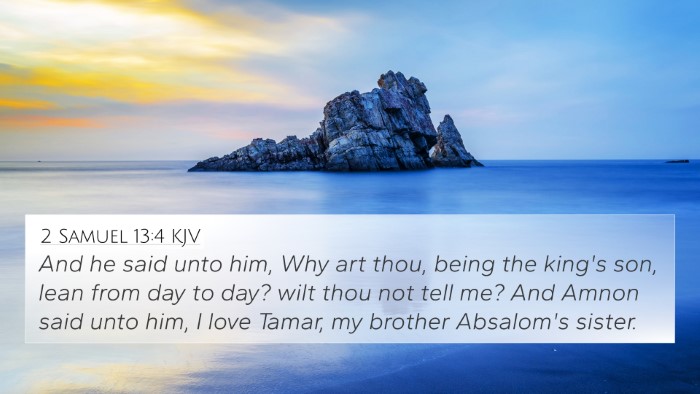 2 Samuel 13:4 (KJV) »
2 Samuel 13:4 (KJV) »
And he said unto him, Why art thou, being the king's son, lean from day to day? wilt thou not tell me? And Amnon said unto him, I love Tamar, my brother Absalom's sister.
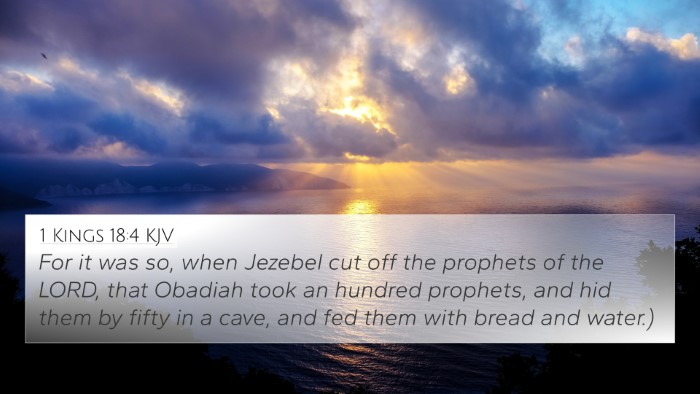 1 Kings 18:4 (KJV) »
1 Kings 18:4 (KJV) »
For it was so, when Jezebel cut off the prophets of the LORD, that Obadiah took an hundred prophets, and hid them by fifty in a cave, and fed them with bread and water.)
 1 Kings 16:31 (KJV) »
1 Kings 16:31 (KJV) »
And it came to pass, as if it had been a light thing for him to walk in the sins of Jeroboam the son of Nebat, that he took to wife Jezebel the daughter of Ethbaal king of the Zidonians, and went and served Baal, and worshipped him.
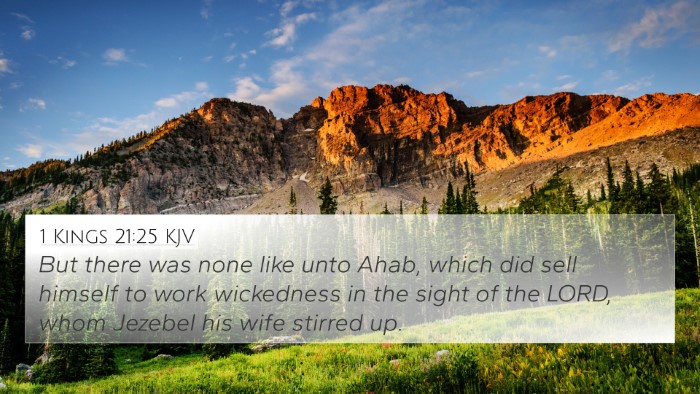 1 Kings 21:25 (KJV) »
1 Kings 21:25 (KJV) »
But there was none like unto Ahab, which did sell himself to work wickedness in the sight of the LORD, whom Jezebel his wife stirred up.
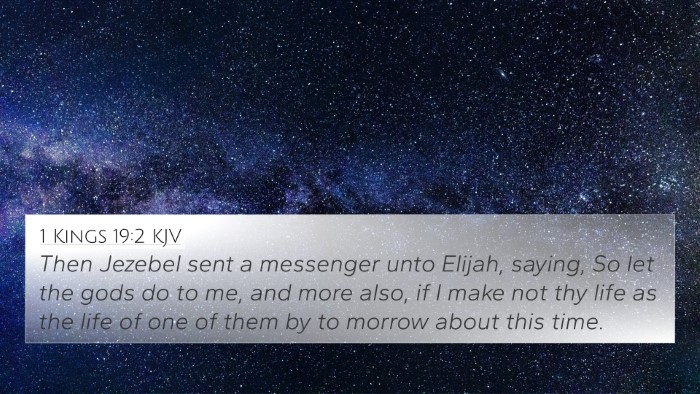 1 Kings 19:2 (KJV) »
1 Kings 19:2 (KJV) »
Then Jezebel sent a messenger unto Elijah, saying, So let the gods do to me, and more also, if I make not thy life as the life of one of them by to morrow about this time.
 Nehemiah 2:2 (KJV) »
Nehemiah 2:2 (KJV) »
Wherefore the king said unto me, Why is thy countenance sad, seeing thou art not sick? this is nothing else but sorrow of heart. Then I was very sore afraid,
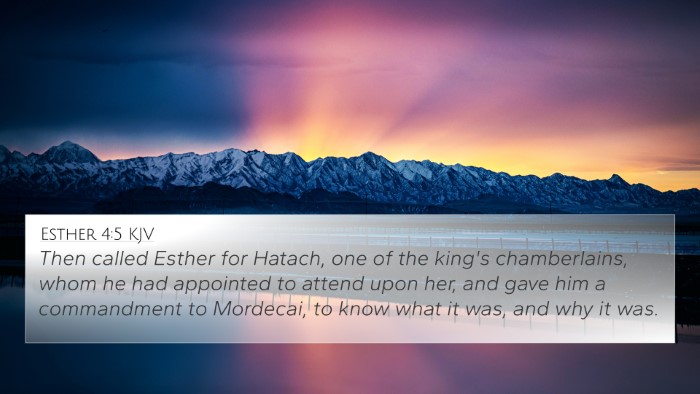 Esther 4:5 (KJV) »
Esther 4:5 (KJV) »
Then called Esther for Hatach, one of the king's chamberlains, whom he had appointed to attend upon her, and gave him a commandment to Mordecai, to know what it was, and why it was.

